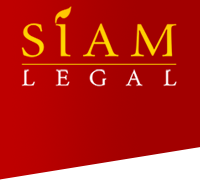Draft Legislation in Thailand for Multinational Enterprises

The Revenue Department has submitted a draft legislation to the Office of Secretariat of the Cabinet that will require all multinational enterprises (MNEs) to pay a set percentage of taxes, if it is passed into law. The purpose of this bill is to prevent a specific kind of tax evasion called “profit shifting,” which involves shifting profits earned in Thailand to subsidiaries in other countries that have lower tax rates.
Other than the draft legislation, the Organization of Economic Co-operation and Development (OECD) has also proposed another tax principle for Thailand and OECD member countries that will affect the allocation of profits of large MNEs that must be distributed to various countries. Together, it is hoped that these policies provide more revenue for government initiatives while ensuring a more level playing field in Thailand’s economy.
Top-up Tax Act in Thailand
This draft legislation includes the “Top-up Tax Act,” which aligns with the OECD’s and G20’s resolutions, both of which serve as frameworks for international cooperation with 140 countries, and is expected to be implemented in 2025. The government is quick to point out that this new tax policy is in line with those of other major economies.
This act includes provisions on measures to prevent tax base erosion and profit shifting, also known as “Pillar 2” of the OECD’s Global Anti-Base Erosion Rules, to prevent tax competition. It also aims to attract investment by setting a global minimum tax rate of 15%. MNEs will be responsible for paying the difference in taxation if profits are transferred to subsidiaries located in countries with tax rates lower than 15%.
It is important to bear in mind that the Top-up Tax Act will not apply to companies entitled to the tax privileges and benefits of the Board of Investment (BOI) under the Investment Promotion Act.
Current Legislation Progress & Public Reception
The Revenue Department was tasked with drafting the legislation after the Cabinet approved the proposal for its principles in March 2023 by the BOI. Since then, the draft legislation has undergone public hearings, as per the constitution.
The comments made during the hearings focused on practical questions, such as the differences between standards used to calculate the Top-up Tax and those used for Thai accounting. There were also discussions with the Federation of Accounting Professions and inquiries concerning the format of documents required for compliance with the tax law.
Another thing to note was the positive reception of most MNEs subject to Pillar 2, as they already understood the OECD’s rules and are prepared to comply with the rules of the Top-up Tax Act upon its implementation.
If the draft legislation passes into law, the Revenue Department projects it will see a boost in tax revenue to the tune of 12 billion THB per year.
Pillar 1
The OECD also plans to propose a new tax principle applicable to Thailand as well as all other member states. Known as “Pillar 1,” it introduces an international tax framework that will impose taxes based on the profit allocation of MNEs with global income exceeding 20 billion EUR and a combined profit rate exceeding 10% of income.
Any profit exceeding 10% of income is required to be allocated tax-proportionally to all the countries where the MNE invests and generates income at 25% of excess profits beyond 10% of income. However, according to the OECD, economic nexus points from market jurisdiction revenue of at least 1 million EUR must be taken into account when applying Pillar 1.
Legislation Complications
There are still a few issues with the implementation of Pillar 1 that require clarification, such as details of profit allocations and the establishment of clear tax certainty between countries. This new tax principle also requires a sufficient number of countries to sign the agreement, meaning that companies subject to Pillar 1 will have to share profits with market jurisdictions.
Despite these calls for clarity and discussion on these new rules and policies, the reaction from MNEs in Thailand has been subdued. The proposed legislation was not a surprise, and it falls in line with international standards to curb what many see as blatant tax evasion, so there are not many arguments against the new draft bill’s implementation at this time.
Category: Thailand Tax
About the Author (Author Profile)
Siam Legal is an international law firm with experienced lawyers, attorneys, and solicitors both in Thailand law and international law. This Thailand law firm offers comprehensive legal services in Thailand to both local and foreign clients for Litigation such as civil & criminal cases, labor disputes, commercial cases, divorce, adoption, extradition, fraud, and drug cases. Other legal expertise of the law firm varied in cases involving corporate law such as company registration & Thailand BOI, family law, property law, and private investigation.











